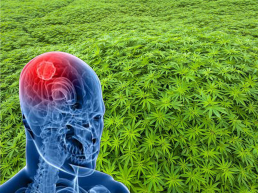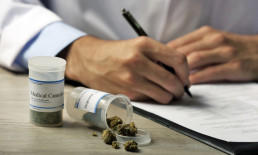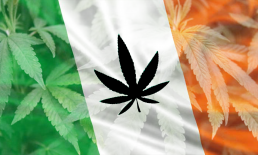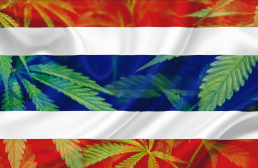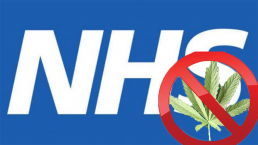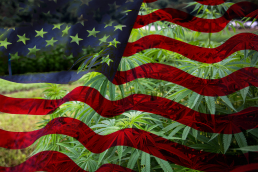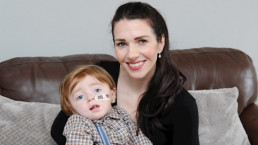Australian researchers launch study to test cannabis as potential treatment for brain cancer
Australian researchers launch study to test cannabis as potential treatment for brain cancer
- Leading Australian researchers hope to find a treatment for Glioblastoma (GBM) using medical cannabis rather than chemo or surgery
- GBM is the most common type of malignant brain tumour in the UK
- 82 participants will be given a daily dose of high THC cannabis oil over a 3 month period
A leading Australian neurosurgeon is teaming up with a nutritional supplement company in a world-first trial to test whether medical cannabis could be used to treat aggressive brain cancer.
Professor Charlie Teo and BioCeuticals are leading the clinical trial, which is examining if the cannabinoids, particularly THC, could help ease symptoms and even possibly slow cancer growth in sufferers of Glioblastoma, or GBM.
GBM is the most aggressive cancer that begins within the brain.
Initially, signs and symptoms of glioblastoma are non-specific. They may include headaches, personality changes, nausea, and symptoms similar to those of a stroke. Eighty-two Australians aged 19-70 with GBM will be participating in the study.
Each participant will be administered a daily oral dose of cannabis oil with high percentages of THC.
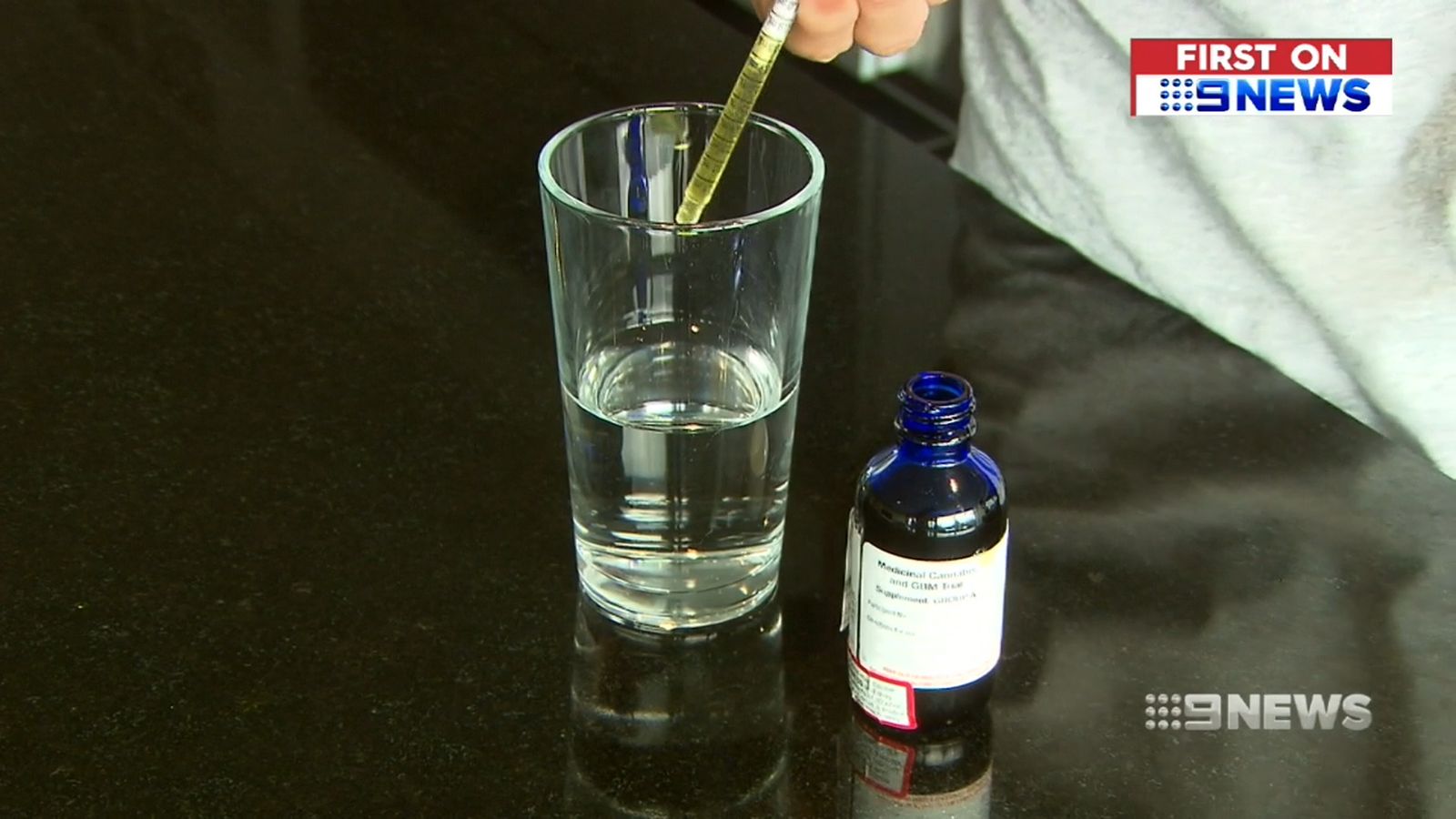
Brain scans will be taken of each participant throughout the three-month study, to see if there’s any impact on tumour growth.
Patients must continue their conventional treatment throughout the trial.
Discussing the study, Belinda Reynolds from BioCeuticals told Australian news channel, 9News:
“The product that we are using in the trial is an organic, whole plant extract which is taken orally as an oil.
“One of the main improvements that we’re hoping to see is reduction in that nausea so they feel less ill and also an improvement in appetite which can ultimately help with reducing that weight loss.
“One of the main improvements that we’re hoping to see is reduction in that nausea so they feel less ill and also an improvement in appetite which can ultimately help with reducing that weight loss.“
– Belinda Reynolds, BioCeuticals
Professor Teo added:
“To be a realistic we are looking at a treatment that may offer people some benefit.
“It is the most aggressive of all cancers known to mankind and has a terrible prognosis.”
While the researchers are not expecting, or promising, a cure for cancer, one of their central aims is to find supporting evidence for claims that medical cannabis can indeed be used in the treatments of cancer.
They also hope to offer patients some relief from this devastating disease.
GBM is the most common type of malignant brain tumour, with around 2,200 cases diagnosed each year in England, and about 1,000 Australians are diagnosed with GBM each year
This research could potentially help thousands of people avoid dangerous surgical procedures and chemotherapy, which are currently the only options currently available for patients.
Top Ten Terpenes and their potential medicinal properties
Top Ten Terpenes and their potential medicinal properties
- Terpenes are the chemicals which give all plants their smell and taste
- Terpenes, like cannabinoids, have shown potential therapeutic properties
- Here are our Top Ten Terpenes and the potential uses they may have in health care
Medical cannabis made national headlines in the UK last year. A lot of focus in the media was afforded to cannabinoids, the chemical compounds present in cannabis which is the main source of cannabis’ medicinal properties.
Cannabidiol (CBD) was given special attention, with the cannabinoid being fully legal and available to purchase without prescription.
Cannabinoids, however, are not the only therapeutic chemicals in the cannabis plant.
Introducing terpenes: the chemical which gives cannabis, and all plants, their distinct flavour and aroma.
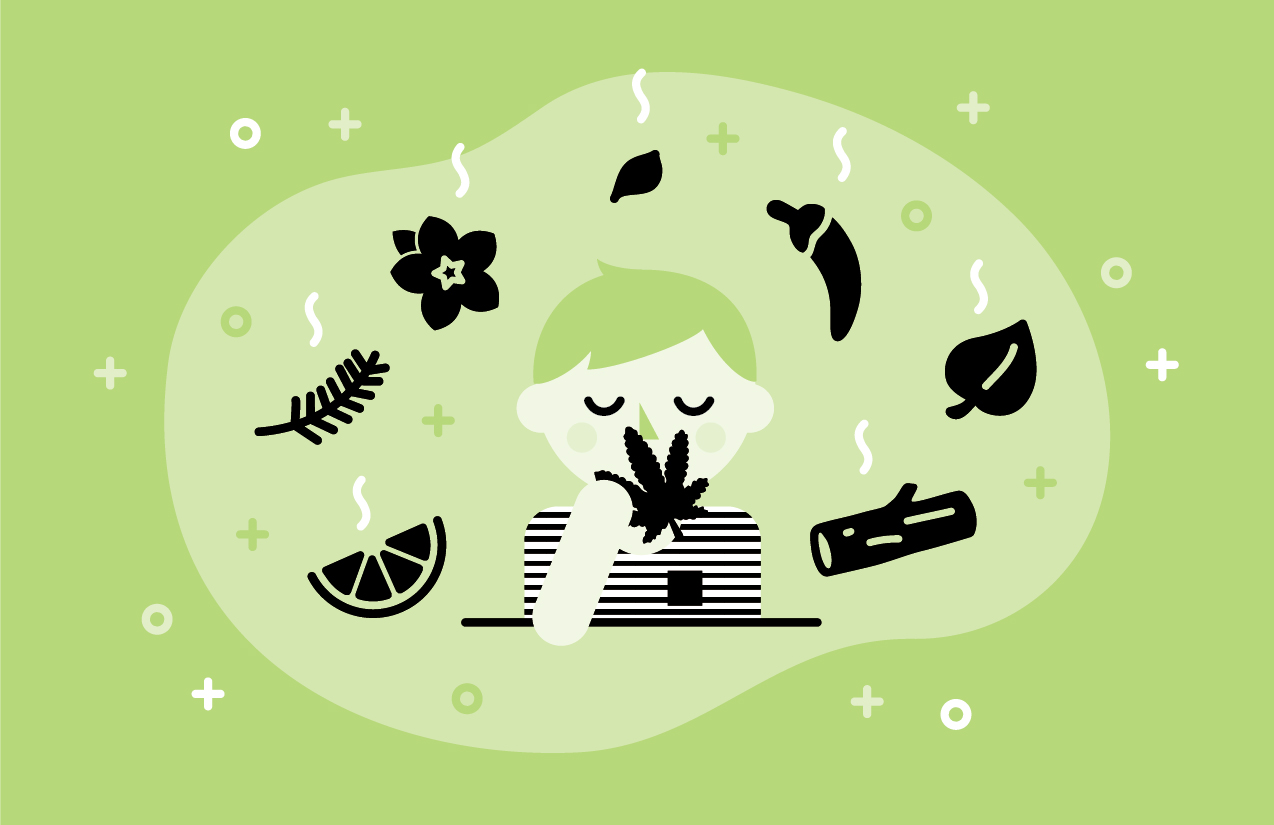
Not only are terpenes responsible for cannabis’ smell and taste, they contribute to therapeutic effect cannabinoids have, working together to help potentially heal and protect the human body.
Terpenes are not psychoactive like THC, but do interact with THC and the other cannabinoids.
This relationship between phytocannabinoids and terpenes is known as the “entourage effect,” where all the individual cannabinoids (such as CBD and THC) work together with terpenes to increase the potential medical benefits cannabis can have.
Individually isolated terpenes have numerous benefits, but when they are combined with other terpenes and cannabinoids, the possibilities for medical preparations are vastly increased.
Here are our Top Ten terpenes:
Limonene
Limonene is one of the most common terpenes found in cannabis. It’s also found in citrus.
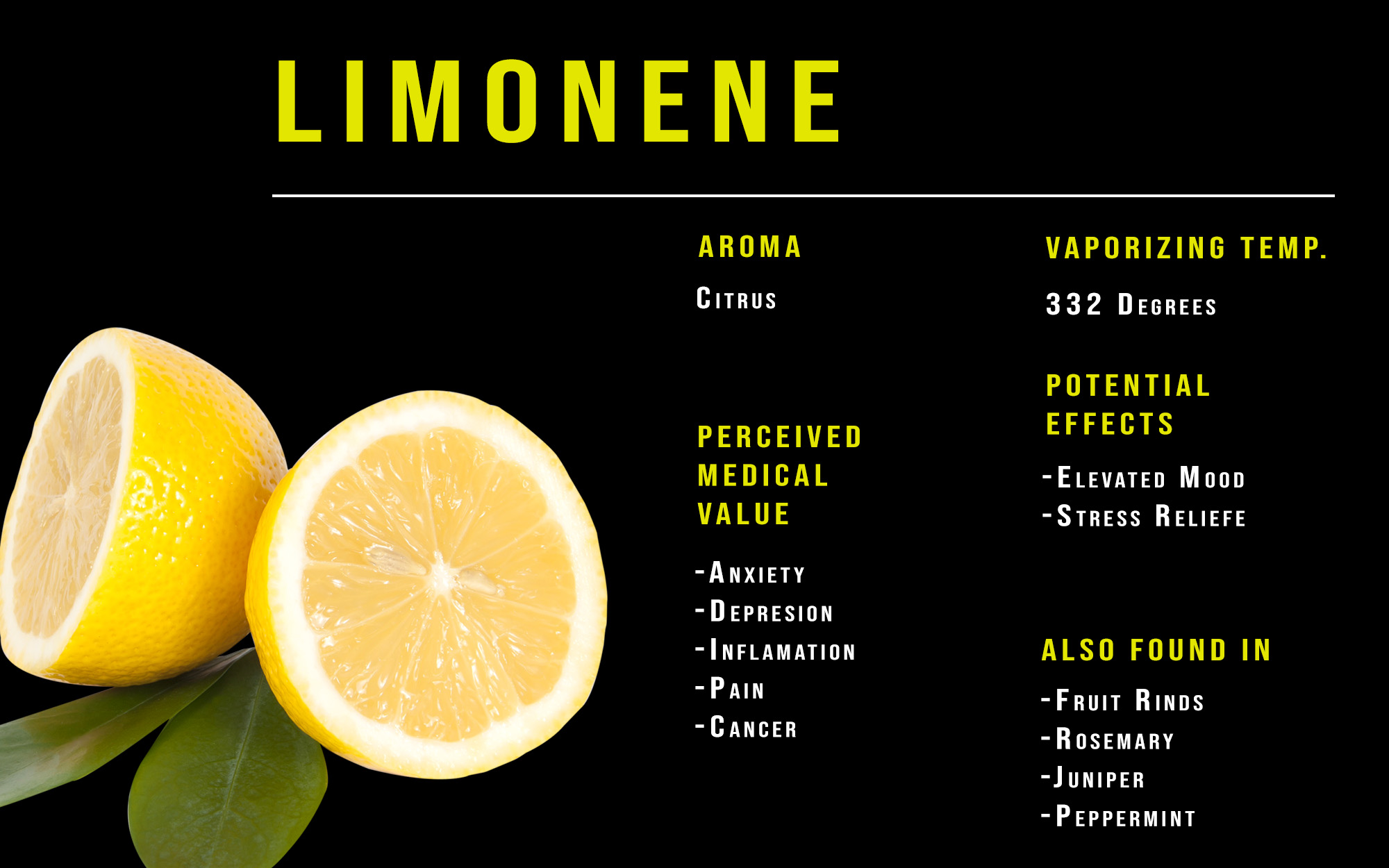
Research has shown Limonene to have potential anti-anxiety, anti-insomniac and even antibacterial properties.
Japanese researchers found that inhaling limonene vapour increases the levels of dopamine and serotonin in key regions of the brain associated with anxiety, depression, and OCD.
A recent study found that Limonene may even be able to be used in the treatment of breast cancer.
Another study found that due to its blood pressure increasing properties, Limonene “should be considered as a promising lipid lowering agent and antioxidant activities with blood pressure-lowering properties.”
Limonene is common in:
- Super Lemon Haze
- Durban Poison
- Jack Herer
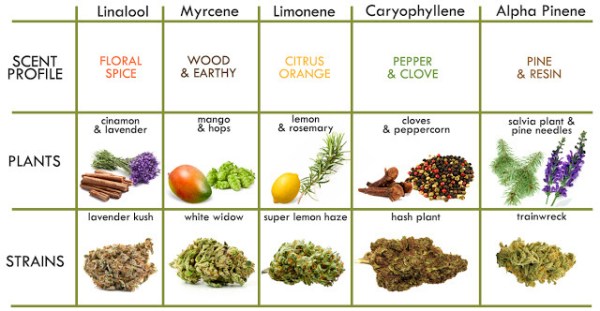
Myrcene
Myrcene is the most common terpene found in cannabis. β-Myrcene is found in mango, hops, lemongrass, bay leaves, eucalyptus, among countless other plants.
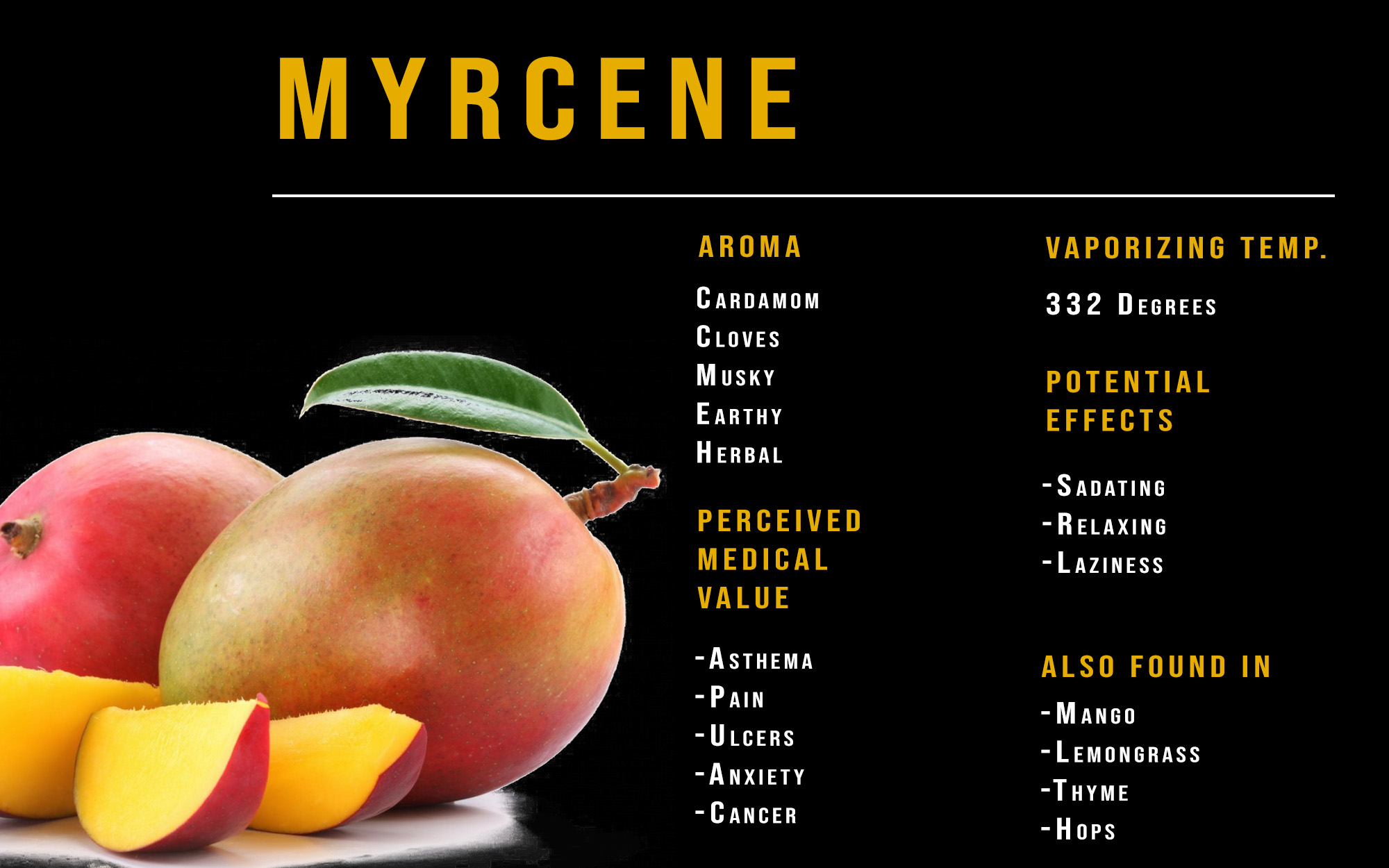
It’s believed that this terpene is responsible for determining whether a strain is indica or sativa.
A cannabis testing facility, Steep Hill Labs, have suggested that strains low in myrcene (less than 0.5%) will be sativa, whereas those with over 0.5% myrcene are categorized as indica and typically deliver symptoms that include appetite stimulation and “couch lock.”
According to the laboratory:
“If a sample has over 0.5% myrcene, it will have indica, or “couchlock” effects.
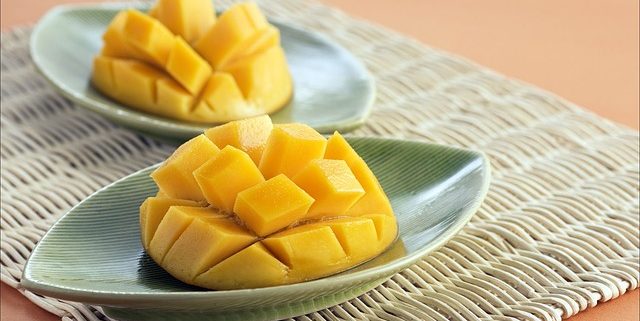
“If a sample has less than 0.5% myrcene, it will have the soaring sativa effect. It is simply the amount of myrcene that is in the sample that dictates how [one] will be affected.”
Myrcene is actually one of the most widely used chemicals by the perfume industry.
Researchers at the University of Coimbra found that “myrcene has significant anti-inflammatory and anti-catabolic effects.”
A GW Pharmaceuticals study found “great promise” for myrcene in use for pain relief.
Researchers in Brazil found that myrcene has a variety of sedative effects in rodents, inducing sleep, reducing motor coordination and suppressing locomotor activity, indicating strains heavy in myrcene can be used as a sedative.
Interestingly, myrcene has been found to have increase the permeability of cell membranes, allowing THC to reach brain cells easier and quicker.
Strains heavy in myrcene include:
- White Widow
- Kush
- Skunk
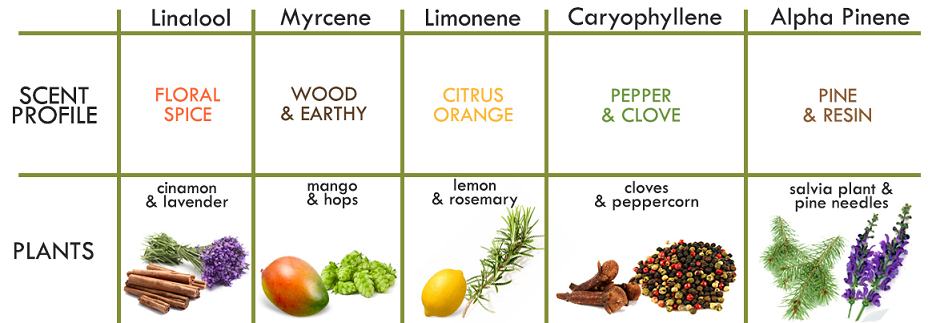
Linalool
Linalool is probably most well-known for its lavender aroma.
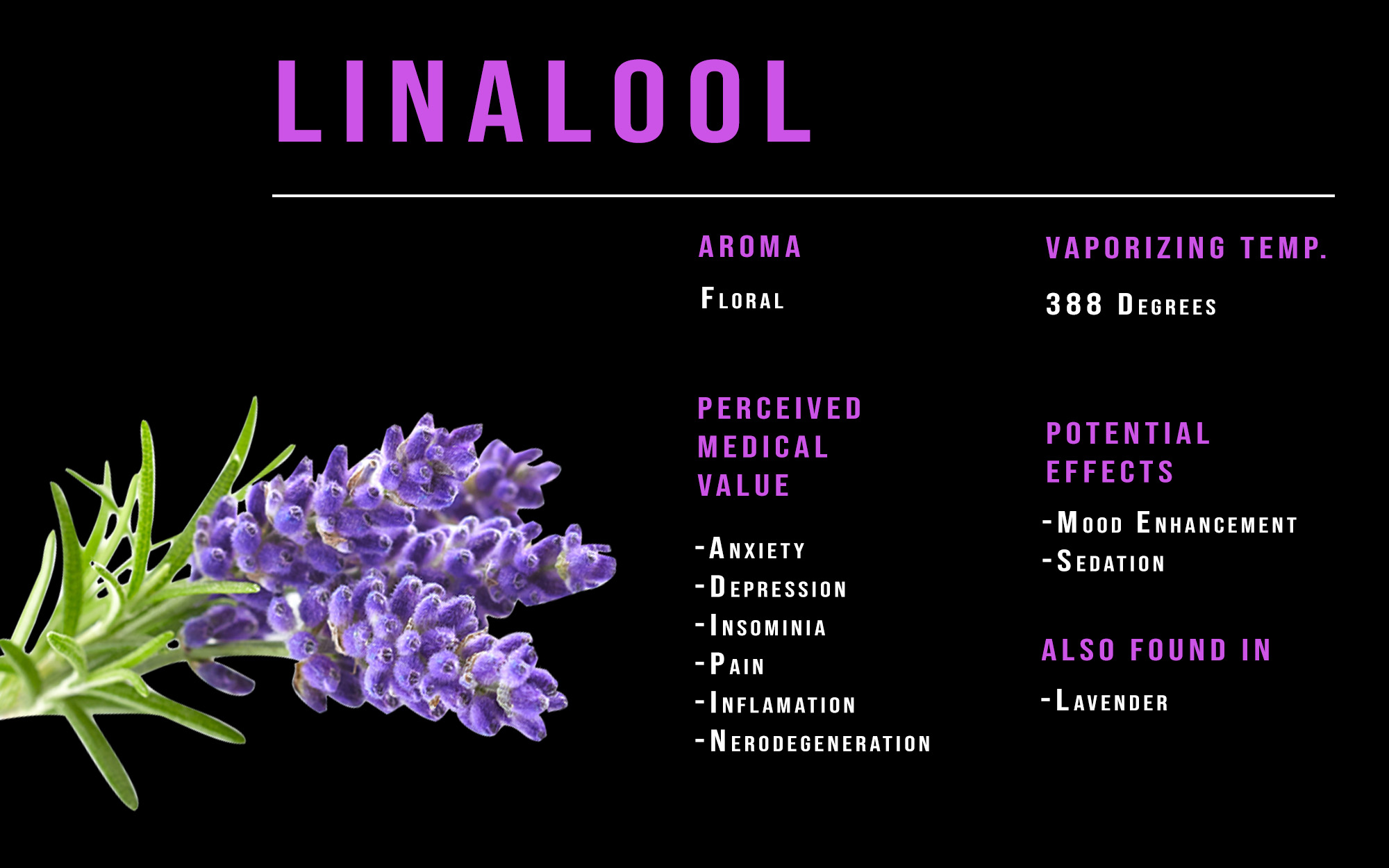
One of Linalool’s most common uses is to reduce stress and anxiety, due to its sedative and soothing properties.
Japanese researchers were able to bring down elevated stress levels in the immune system in lab rats “near-normal” after allowing the rats to inhale linalool extract.
Strains high in linalool may be ideal for epileptic treatments.
Research published in Neurochemical Research found that:
“Psychopharmacological in vivo evaluation of Linalool showed that this compound has dose-dependent marked sedative effects at the Central Nervous System, including hypnotic, anticonvulsant and hypothermic properties.”
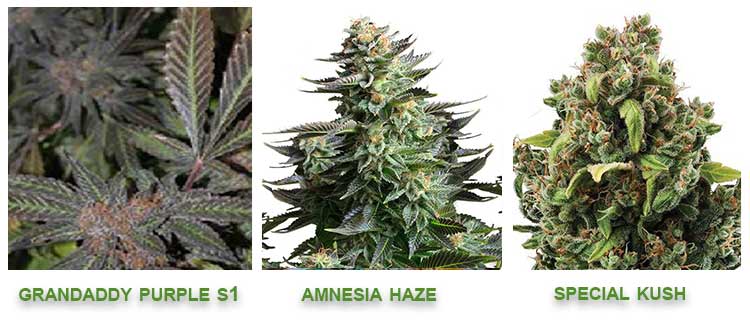
Research is now being conducted to investigate linalool’s potential use in cancer treatments.
Strains high in linalool include:
- LA Confidential
- Amnesia Haze
- Purple Kush
Humulene
Humulene (Beta-caryophyllene) is found in the essential oil of oregano, black pepper and clove, carrying a subtle woody, earthy aroma with spicy herbal notes.
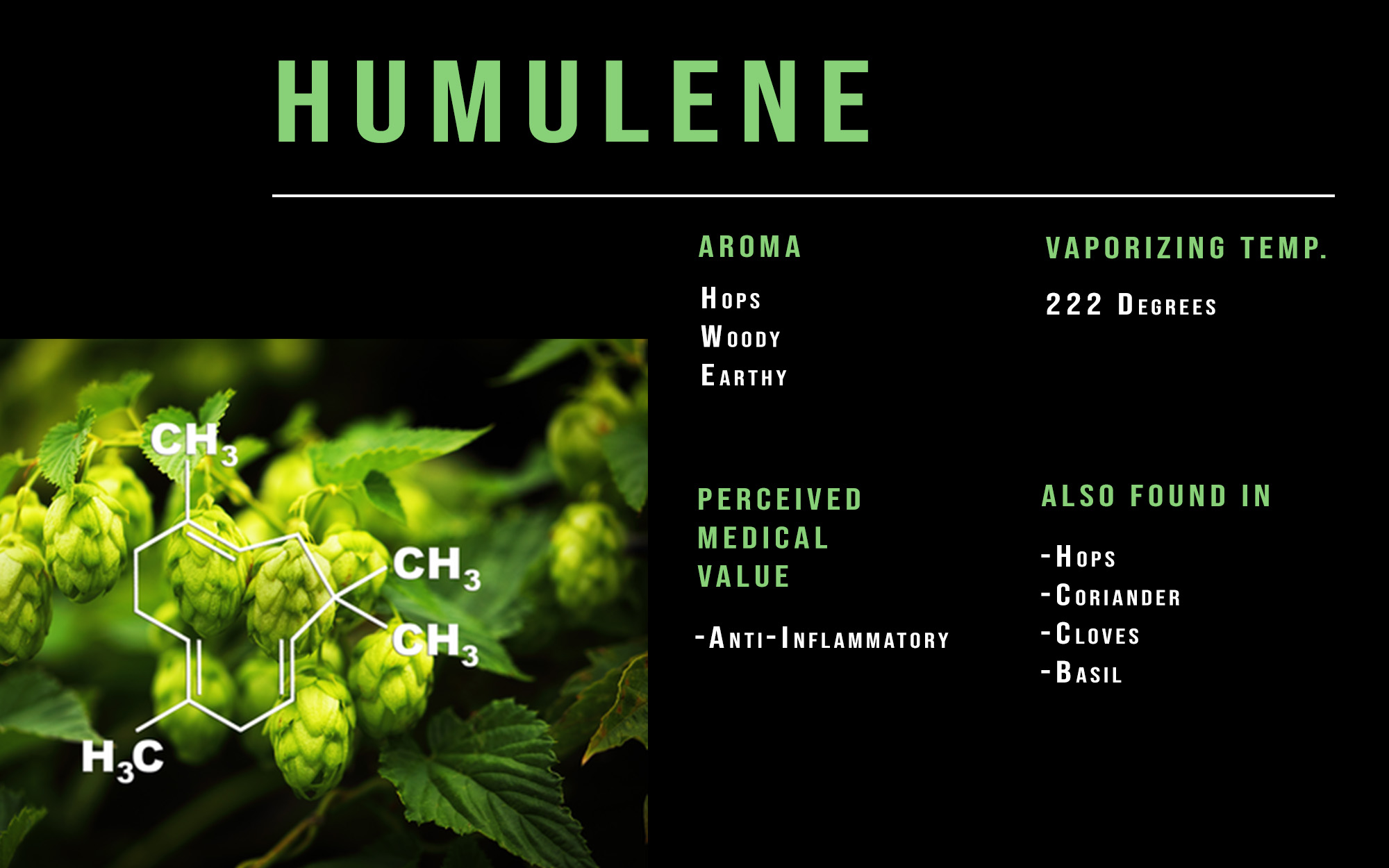
While cannabis is more commonly associated with appetite simulation, due to humulene’s close biogenic relationship with caryophyllene, humulene is actually known to suppress hunger.
As caryophyllene is often associated with gut health, humulene can act as an appetite suppressant when highly present in cannabis.
A Brazilian study examined humulene’s systemic anti-inflammatory and antinociceptive properties, finding it may have great potential as an anti-inflammatory.
Research in Canada found humulene to have both anti-bacterial and gastro-protective properties.
Strains high in humulene include:
- Sour Diesel
- Girl Scout Cookies
- White Widow
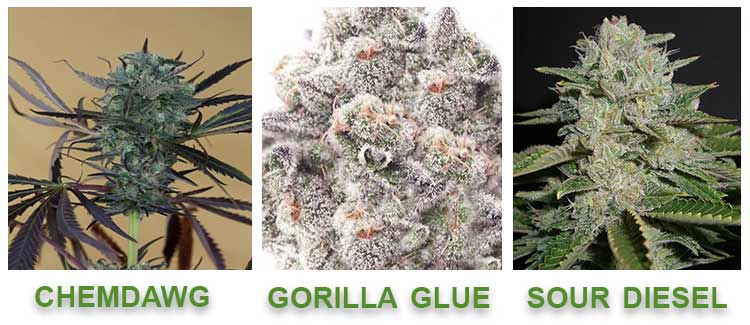
Pinene
There are two structural isomers of pinene found in nature: α-pinene, found in pine (and most conifers) and rosemary, and β-pinene which naturally occurs in rosemary, parsley, and basil.
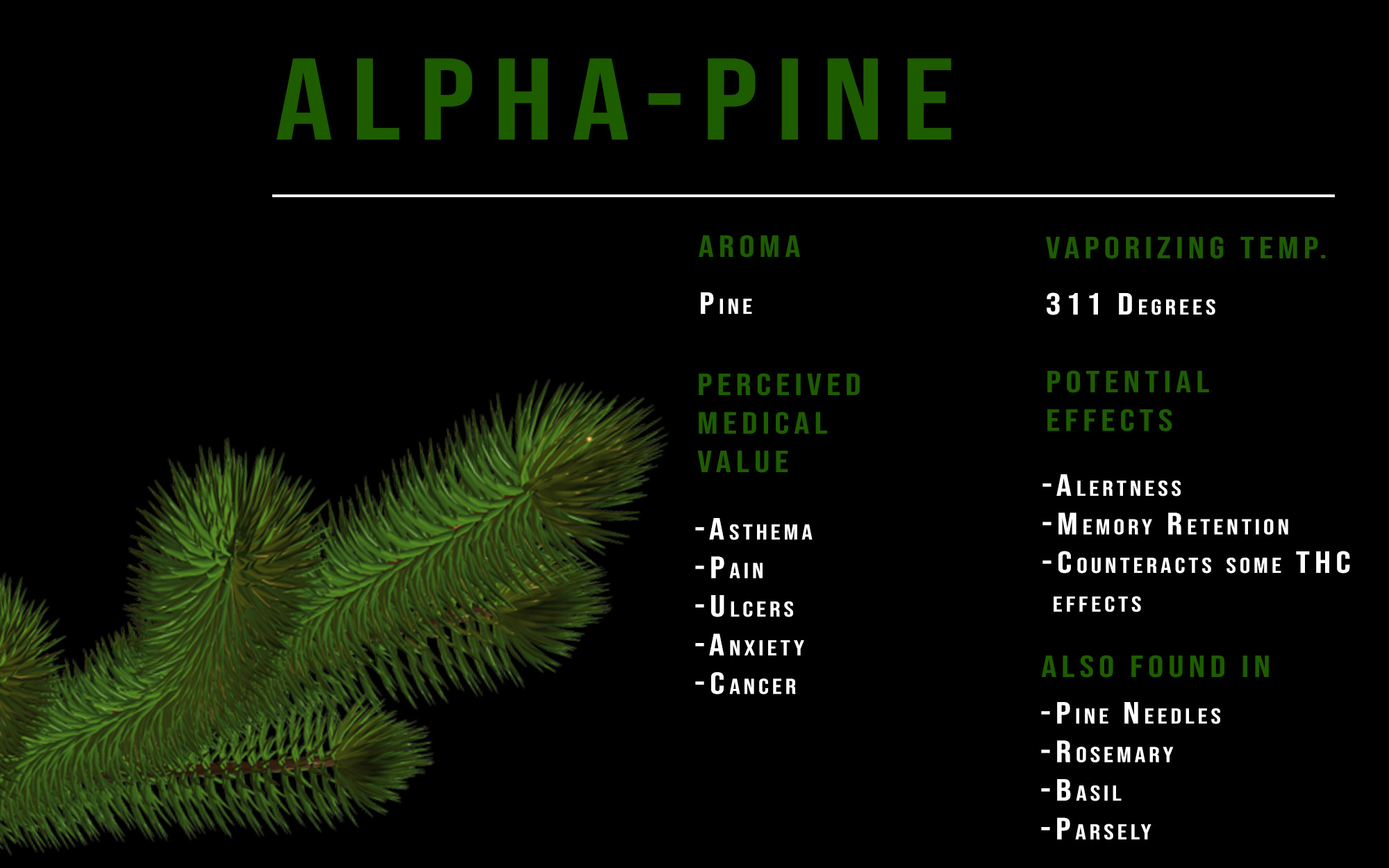
Studies have shown that pinene enhances memory and boosts learning by blocking a chemical called acetylcholinesterase from breaking down acetylcholine.
Acetylcholine is an important neurotransmitter that helps neurons relay signals related to attention, motivation, as well as memory and arousal. This neurotransmitter also facilitates the movements of skeletal muscles.
Like CBD, pinene is known for its acetylcholinesterase inhibitory activity, which can potentially counteract the negative effects of THC, such as psychotic episodes, by allowing brain cells to communicate better with each other.
Strains high in pinene include:
- Jack Herer
- Blue Dream
- OG Kush
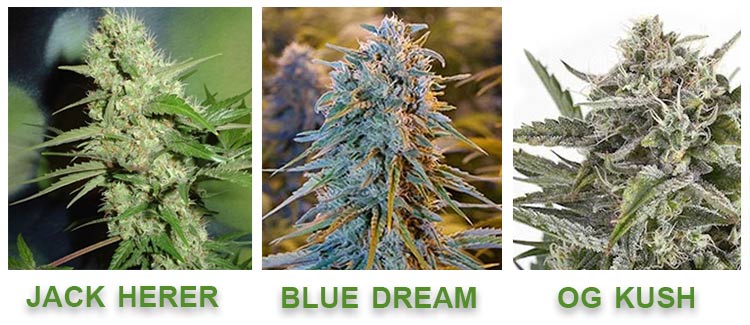
Borneol
Borneol is most commonly found in absinthe, cinnamon, and rosemary, carrying a has a fresh, minty camphor aroma.

The terpene has been used a traditional Chinese medicine dating back centuries, commonly used in acupuncture or as part of oral or skin treatments.
Research has shown borneol to help reduce inflammation. Results from a study which investigated cell-culture models of gingivitis suggest that borneol could be added to medicated mouthwash in order to ease conditions such as red gums or tonsilitis.
Chinese and American researchers found that borneol applied topically could be used to sooth aching muscles and joints, acting as a topical pain reliever.
A 2014 study found borneol could potentially reduce the risk of blood clots.
Perhaps most interestingly, borneol is now being investigated as an aid to the absorption of medical compounds, including those that treat cancer.
While borneol doesn’t kill cancer cells, it helps other molecules get to them and cause them to self-destruct.
Strains high in borneol include:
- Most varieties of haze
Eucalyptol
Eucalyptol is the terpene responsible for the pleasurable and cooling scents found within eucalyptus, mint and rosemary.

A 2012 study tested eucalyptol (cineol)’s effect on memory and mood, with a particular interest in whether the terpene could be used to treat Alzheimer’s.
A positive correlation was found between the number of correct answers and higher blood levels of eucalyptol, with the researchers concluding that the terpene may help contribute towards improved cognition, possibly easing some symptoms experienced with the onset of Alzheimer’s disease.
Research in Iran revealed the terpene to be effective against certain strains of bacteria, indicating its potency as an antibacterial.
Eucalyptol may also serve as an effective therapeutic when it comes to asthma.
Research published in the Journal of Asthma in 2012, found that eucalyptol can aid improvement in lung function, even showing potential to reduce dyspnea in asthma patients.
Strains high in eucalyptol include:
- Headband
- Bubba Kush
- Girl Scout Cookies
- Super Silver Haze
Delta-3 Carene
Delta-3 carene is beholden to a sweet and earthy aroma with piney undertones, most commonly known as the main component of turpentine.
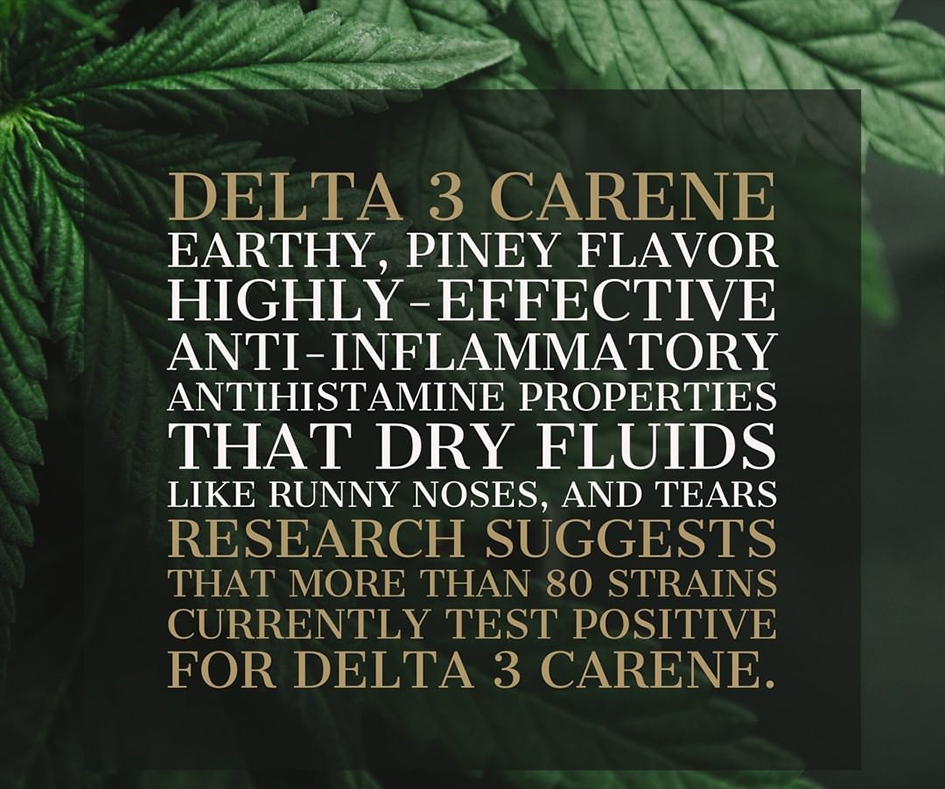
Commonly found in the resin of rosemary, pine, and cedar, carene is widely considered a natural antihistamine. Delta-3 carene contains a subtle lemon flavour.
This terpene may actually be the element in cannabis which causes users “cotton mouth” and redness in the eyes.
Aside from clearly identifying cannabis users, Delat-3 carene may also be an effective contributor towards combating fibromyalgia, arthritis, and osteoporosis, as well as possibly promoting memory retention and mental sharpness.
Strains high in Delta-3 carene include:
- Haze (Super Silver, Super Lemon)
- Skunk
Pulegone
Pulegone can primarily be found in mint species, camphor, and rosemary. In cannabis, the terpene count of pulegone is normally at a far lower concentration than other terpenes.
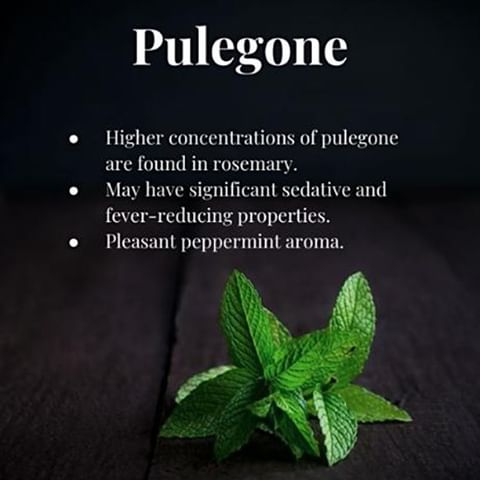
In very high concentrations, pulegone can actually have negative effects on the body, particularly on the liver.
Research has found Pulegone to be a good acetylcholinesterase inhibitor, preventing the action of the protein which destroys acetylcholine.
Acetylcholine is an important chemical needed to store memories in the brain. Without it, it is impossible to form and retain new memories.
Like pinene and CBD, pulegone can help prevent some of the negative side effects of cannabis, such as THC-induced memory loss.
No strains of cannabis are high in pulegone due to its potential carcinogenic properties in high doses.
Terpineol
Terpineol occurs naturally in over 150 plants, with hints of a lilac aroma, often found in cosmetics and perfumes.
Research has shown that due to terpineol’s anticholinergic properties, it a promising candidate drug for the treatment of diarrheal diseases.
Most importantly, a-Terpineol, a component of terpineol, has shown promise anti-cancer properties, and “could be used in the prevention or even treatment of cancer, as it was found that α-T demonstrated a potential antioxidant capacity effect against different human cancer cell lines (breast, lung, prostate, ovarian and leukemia).”
Strains high in terpineol include:
- Jack Herer
- Girl Scout Cookies
- White Widow
- OG Kush
References and further Reading
World's largest pharmaceutical cannabis producer moving to UK in 2019
World’s largest pharmaceutical cannabis producer moving to UK in 2019
- Pharmaceutical company Canopy Growth is world’s largest producer of medical cannabis products
- Canopy is hoping to conduct its first clinical trial in Britain mid-2019
- Alcohol manufactures have invested heavily in Canopy
Canopy Growth, the world’s largest cannabis company is investing heavily in the emerging British medical cannabis market.
The move to Britain comes after the Conservative-led government changed laws partially legalising medical cannabis.
The Canadian grower of cannabis managed to generate sales of £47m last year alone. Canopy has spent years researching cannabinoid profiles of cannabis, cultivating specific strains, with a variety of different strengths and terpene profiles.
In an interview with The Telegraph, Mark Ware, Canopy’s chief medical officer, explained that a new UK subsidiary, Spectrum Biomedical, would begin importing and distributing cannabis to pharmacies at the request of physicians in the first half of 2019.
Discussing the expansion, Ware said:
“We take cannabis very seriously indeed as a medicine.
“We have as close to a pharmaceutical-grade product as we can without the approval.”
Cannabis’ strength can be controlled by altering the ratios of THC, CBD and the 100s of other cannabinoids present in cannabis.
Canopy Growth processes cannabis plants into pharmaceutical oils, gel capsules and even dried raw flowers.
To help British doctors who are unfamiliar with the Endocannabinoid System and cannabinoids as a medication, Spectrum will offer doctors a colour-coded chart to help allocate the “right” products for their patients, with each shade representing a different ratio of THC to CBD.
Mr Ware explained that charts like this help doctors who are new to medical cannabis traverse navigate the complex structure of the herbal plant:
“Cannabis is very complex, it is used for a huge range of different conditions, such as chronic pain, anxiety, sleeplessness and nausea.
“The colour-coding is a way to simplify the complexity of the plant for patients.”
“The UK’s change in the law around medicinal cannabis use is an opportunity to build research programmes here and support patient access.”
– Cosmo Feilding, managing director of Beckley Canopy Therapeutics and Spectrum Biomedical
Canopy is also hoping to begin its first clinical trial in the UK in the second quarter of 2019.
The trial will investigate how effective cannabis is as a form of pain relief for cancer patients.
The study is being carried out in partnership with the Beckley Foundation, which supports research into banned substances, under a joint venture called Beckley Canopy Therapeutics.
Private investors donated £7.4m to Beckley Canopy Therapeutics earlier this year, including Richard Reed, the founder of Innocent smoothies, and British billionaire Jim Mellon.
Cosmo Feilding, managing director of both Beckley Canopy Therapeutics and Spectrum Biomedical, hopes to raise a further £7m to £15m next year:
“The big cannabis-producing companies recognise the need to provide more clinical evidence as they move towards being more pharma-focused and we will see this ramp-up, with more clinical trials over the next few years.
“I think the global medicinal cannabis market will prove much bigger than the recreational use market.”
He added that he has ambitions to run further clinical trials in Britain:
“The UK’s change in the law around medicinal cannabis use is an opportunity to build research programmes here and support patient access.
“The Canadian experience teaches us it’s a slow process. This is a drug that has a lot of stigma and is misunderstood, so there is anxiety among doctors, regulators, patients and policy makers.
“But in the end, it’s a family of compounds that have tremendous therapeutic potential.”
Corona brewer, Constellation, invested £32.bn in Canopy Growth earlier this year, taking its stake to 38%.
References and further Reading
Irish Health Minister announces plans to allow famers to grow cannabis
Irish Health Minister announces plans to allow famers to grow cannabis
- Irish farmers could be soon growing cannabis for medical purpsoes
- Ireland’s Health Minister made comments on TV suggesting he’d prefer to grow the plants on Irish soil rather than import
- Medical cannabis could be legal in Ireland by the end of 2019
A bill which would legalise medical cannabis passed through the Dáil (Ireland’s Parliament) earlier in December.
It now looks like the production of the cannabis which would be used for extraction could be done by Irish farmers after Ireland’s Health Minister, Simon Harris, suggested that Irish farmers could be used to supply the plant. Speaking to TheJournal.ie, the Irish Farmers’ Association (IFA) expressed their willingness to meet with Mr. Harris after he made comments on the possibility of Irish farmers growing cannabis on Irish news channel RTÉ.
RTÉ’s agricultural programme Ear to the Ground looked into cannabis farms and the possibility of growing the crop in Ireland in the future.
On the show, Harris explained that he would like to see medical cannabis grown in Ireland in the future, adding that he hopes to introduce legislation allowing for medicinal use of the plant as early as 2019.
“This is a major priority for me and I really want to see this happen in 2019.“
– Simon Harris, Ireland Health Minister
Discussing the “lack of availability of cannabis” in Ireland, and how there are no plans for recreational use, Harris said on the show:
“This is not about the recreational use and people smoking joints.
“This is about using in a controlled way, in a monitored way, with the support of your clinician, a product that could ease your pain and suffering after you’ve tried all the conventional treatments.
“This is a major priority for me and I really want to see this happen in 2019.
“I think it could be an opportunity for Irish farmers in due course.
“Does it make sense to grow your own in Ireland rather than be dependent on importing a product? I think, quite frankly, it does.”
A spokesman for the IFA said:
“We note the minister’s comments with interest.
“Farmers always consider the merits of any potential diversification and we are open to meeting with the minister to discuss this matter, should he wish.”
Thai parliament unanimously votes to legalise medical cannabis in “New Year’s Gift”
Thai parliament unanimously votes to legalise medical cannabis in “New Year’s Gift”
- Thailand became the first South East Asian country to officially legalise medical cannabis
- Recreational cannabis remains banned
- Kratom will also be legalised
- Foreign pharmaceutical firms are already trying to dominate the market with patents for cannabinoid-medications
In a historic vote, Thailand’s parliament voted to approve cannabis for medical and research purposes on Christmas Day.
In a unanimous vote of 166-0, the interim junta-appointed parliament approved the amendments to the Narcotic Act of 1979, paving the way for legal use of cannabis for medical treatments. Only 13 lawmakers abstained.
Those with prescriptions or recognised certificates will be allowed to carry specified amounts “necessary” for medicinal reasons, if they have a prescription or recognised certificate, the Bangkok Post said.
Licences for production and sale of the product will be strictly controlled. Recreational cannabis remains illegals, carrying a potential five-year prison sentence, going up to 15 years for possession of over 10 kilograms.
Amnesty will be granted for those who already currently possess cannabis intended for medical use, but they will need to register the substances with the Food and Drug Administration within 90 days after the law is enacted.
The law also applies to kratom, a South East Asian plant that acts as a stimulant.
It isn’t clear when the law will come into effect, but legislation in Thailand is typically enacted within a month after parliament approves it, so we could be seeing legal medical cannabis being prescribed in Thailand before the end of January 2019.
“This is a New Year’s gift from the National Legislative Assembly to the government and the Thai people.“
– Somchai Sawangkarn, Thai Politician
n a televised parliamentary session, Somchai Sawangkarn, the Bill’s sponsor and chairman of the drafting committee, said:
“This is a New Year’s gift from the National Legislative Assembly to the government and the Thai people.”
The main controversy with legalisation in Thailand involves patent requests by foreign pharmaceutical firms, which could allow them to dominate the market, making it harder for Thai patients to access cannabinoid medications.
It also poses a potential problem for Thai researchers to access cannabis extracts for studies.
Discussing this issue, Panthep Puapongpan, Dean of the Rangsit Institute of Integrative Medicine and Anti-Aging, said:
“We’re going to demand that the government revoke all these requests before the law takes effect.”
Despite the Conservative-led Government legalising cannabis for medical use in Britain, it looks possible that Thai citizens could have access to medical cannabis sooner than their British counterparts.
“Massive upsurge” in parents demanding access to medical cannabis for epileptic children
“Massive upsurge” in parents demanding access to medical cannabis for epileptic children
- Over 500,000 people in the UK have epilepsy
- 20,000 of those are children who don’t respond to pharmaceutical medication
- Demand for access to medical cannabis containing THC is rising, but leading doctors claim “not enough evidence” it works
Despite cannabis being legalised for medical purposes in the UK on Nov 1, parents of severely ill children are still unable to get access, with leading doctors citing not enough evidence that THC can help.
There are over 20,000 children in the UK who suffer epilepsy that doesn’t respond to traditional pharmaceutical medications, leading parents to demand access to medical cannabis.
Paediatricians across the UK are reportedly seeing a “massive upsurge” in the number of parents demanding that cannabinoid medication containing THC be prescribed to their epileptic children.
According to the Mail Online, hundreds of parents contacted doctors following the high-profile cases of Billy Caldwell and Alfie Dingle. Conservatives ministers changed the law on prescribing THC for children with intractable epilepsy after the children’s cases went viral in British news.
Both brave children have been prescribed cannabinoid medication containing both Cannabidiol (CBD), a non-psychoactive compound, as well as small amounts of the Tetrahydrocannabinol (THC), the psychoactive compound.
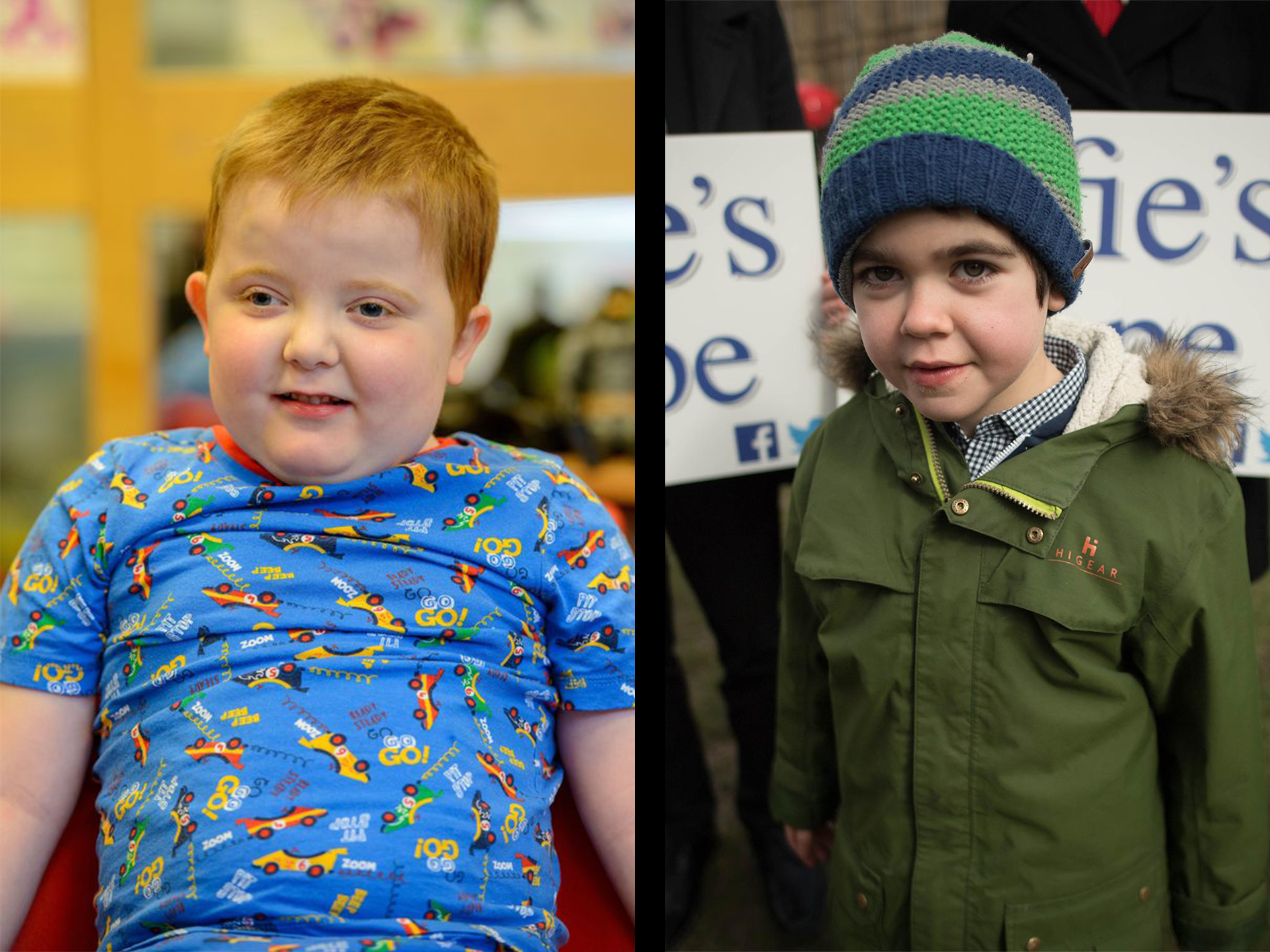
Leading paediatricians now claim that they are ‘horrified’ that so many parents now see cannabis as the only hope for helping their children.
Speaking to the Mail Online, D.r Joseph Symonds, a paediatrician at Glasgow’s Royal Hospital for Children, said:
‘We have seen a massive upsurge in the number of parents asking for cannabis, and specifically cannabis with THC, because of the media interest around the children who have responded well to it.
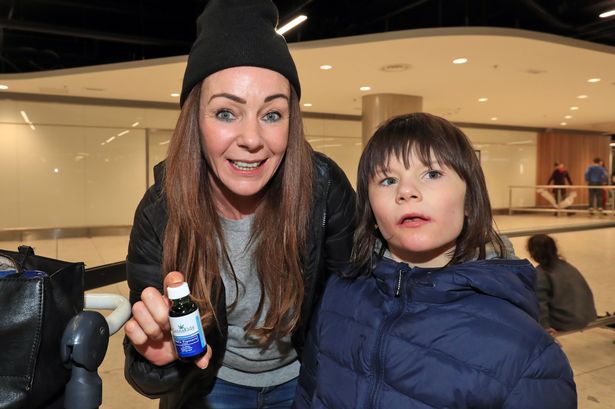
“But the fact remains that while CBD products have medical benefits, there is just not enough evidence to say that THC cannabis will help a child’s epilepsy.
“I can usually talk patients round and explain the dangers but there’s a minority of people who will just go and buy the drug online anyway.”
Of the 2,000 child patients Dr. Symonds treats at his clinic every year, he claims that more than 1,600 of their parents have asked him to prescribe cannabis.
After meeting with a ‘dozen’ of his paediatrician colleagues, they all agreed that there has been an exponential rise in the number of patients asking for cannabis prescriptions.
He also claimed that the “media storm” surrounding medical cannabis was actually damaging the relationship he has with his patients:
“It’s important to have a good therapeutic relationship with your patients and agree what the best way forward is.
“If they come to you saying they want cannabis and you have to say ‘Actually, I don’t really want to prescribe your child this because we don’t know whether it’s harmful or not and we don’t know whether it helps or not’, that has potential to damage that relationship.’
“’Every parent whose child has epilepsy is going to ask themselves what they can do to help. And the one thing they will have heard about is cannabis.
“Compounds derived from cannabis should be treated like any other medicine: investigated rigorously and when proven to be safe, efficacious and cost-effective, prescribed correctly.”
Both the Home Office and the Department of Health are reportedly now deciding which doctors will be allowed to prescribe cannabis products. For now, doctors who want to do so must apply to an independent panel for approval.
“But the fact remains that while CBD products have medical benefits, there is just not enough evidence to say that THC cannabis will help a child’s epilepsy.“
– Dr. Joseph Symonds, paediatrician at Glasgow’s Royal Hospital for Children
Is Dr. Symonds right to have reservations about medical cannabis?
Despite his claims that there “is not enough evidence” to support the argument for using cannabinoids to treat intractable epilepsy, a number of significant studies have been recently published.
This includes research from GW Pharmaceutical, a British based pharmaceutical company which grows cannabis in the UK.
Their current study on their own CBD medication, Epidolex, recently passed the second positive phase 3 for patients with Dravet Syndrome (a severe form of epilepsy).
According to their press release:
“In this trial, Epidiolex, when added to the patient’s current treatment, achieved the primary endpoint of reduction in convulsive seizures for both dose levels (10 mg/kg per day and 20 mg/kg per day) with high statistical significance compared to placebo.
“Both Epidiolex doses also demonstrated statistically significant improvements on all key secondary endpoints.”
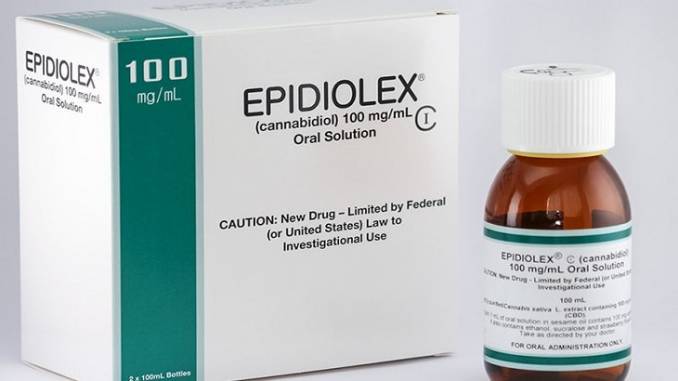
Researchers in New York and Reading (UK) searched for peer-reviewed, primary literature using a PubMed search on cannabis treatments for epilepsy, to see if there was a sufficient quantity of high quality research to support claims that cannabis can be used effectively for epilepsy treatments.
Studies were evaluated based on their scientific rigor and use of physiologically relevant drug concentrations to in vitro studies.
The researchers found that:
“…the evidence describing the effects of major plant cannabinoids that do not act as CBR ligands, most notably cannabidiol and cannabidavarin, exerts consistently beneficial therapeutic effects in preclinical models of seizures, epilepsy, epileptogenesis, and neuroprotection, consistent with emerging human clinical trial results.”
If leading research is finding that cannabis can indeed be safely administered, with greater success than pharmaceutical medications, why are leading paediatricians voicing such strong opposition to prescribing desperate parents cannabis for their children?
If parents in America, Spain and Holland can legally access medical cannabis treatments, why are parents in the UK being denied?
Is it time that our paediatricians listen to their patients, rather than force dangerous, addictive pharmaceutical medication on their children?
Hemp legalised in America after Trump signs 2018 Farm Bill into law
Hemp legalised in America after Trump signs 2018 Farm Bill into law
- The 2018 Farm Bill passed the US Senate by an 87-to-13 margin and the House by a 369-to-47 margin.
- Growing and producing hemp will now be federally legal, easier and cheaper to grow
- The Farm Bill removes hemp-derived products (AKA CBD) from Schedule I status
- CBD produced from cannabis (higher than 0.3% THC) remains Schedule 1
- Cannabis plants must contain less than 0.3% THC to be classified as hemp
- Banks and payment processors can now service the hemp industry
The 2018 Farm Bill which overwhelmingly passed in the U.S. Senate and House, was signed into law by President Trump on Thursday.
The Bill removes Hemp and by-products (AKA CBD products) from Schedule 1 Status. The Department of Justice will no longer be responsible for hemp, growers will now have to submit cultivation plans to the US Department of Agriculture (USDA).
There are still strict regulations applying to those growing industrial hemp.
While section 12619 of the Farm Bill removes hemp-derived products (CBD) from its Schedule I status under the Controlled Substances Act, the legislation does not legalise CBD generally.
Cannabis plants must contain less than 0.3% THC to be classified as hemp (0.1% higher than in the UK). “Cannabusiness” lawyer Steve Schain, from Hoban Law Group, highlighted these key points from the Farm Bill regarding hemp:
- Help research will be allowed for pharmaceutical uses as well as for health, wellness and general nutrition, opening the doors for much more testing
- Banks and payment processors or credit card companies can now service the hemp industry
- Hemp farmers will be allowed to buy crop insurance for the first time
- Investment and capital infusion is allowed in both hemp oil and fibrous hemp businesses (clothes, etc).
- Hemp and hemp products can now be traded and carried across State borders
- Convicted felons can join the industry 10 years after the bill passes
- Hemp futures can be traded for the first time, locking in prices for farmers
Chief executive of Calyx Peak, an American multi-state cannabis grower, Ed Schmults, believes that the new law could help bring down the price of CBD for both producers and consumers:
“Hemp offers a lower cost option for CBD, hemp is easier to grow than cannabis.”
“The significance of this law change should not be underemphasized.“
– Paul Armentano, NORML Deputy Director
Discussing the Bill’s provisions for CBD, John Hudak from the Brookings Institute, explained how the Farm Bill is unlikely to fully legalise the non-psychoactive cannabinoid (for now anyway):
“It is true that section 12619 of the Farm Bill removes hemp-derived products from its Schedule I status under the Controlled Substances Act, but the legislation does not legalize CBD generally.
“As I have noted elsewhere on this blog CBD generally remains a Schedule I substance under federal law.
“The Farm Bill ensures that any cannabinoid — a set of chemical compounds found in the cannabis plant — that is derived from hemp will be legal, if and only if that hemp is produced in a manner consistent with the Farm Bill, associated federal regulations, association state regulations, and by a licensed grower.
“All other cannabinoids, produced in any other setting, remain a Schedule I substance under federal law and are thus illegal. (The one exception is pharmaceutical-grade CBD products that have been approved by FDA, which currently includes one drug: GW Pharmaceutical’s Epidiolex.)”
Despite hemp and hemp-derived products being removed from Schedule 1, CBD from cannabis remains banned.
The developments also mean CBD infused food and drinks could be hitting American shelves in the near future, but currently CBD remains a pharmaceutical ingredient.
In a statement regarding the 2018 Farm Bill, FDA Commissioner Scott Gottlieb clarified that CBD is currently only approved for use in certain drugs. CBD can relax users but doesn’t get them high.
The FDA has said it will look into whether it could allow the use of a drug ingredient in food, holding a public meeting “in the near future” to determine next steps.
For now, the FDA will continue to stop companies from marketing CBD as a drug or disease-thwarting dietary supplement without vetting and approval by the agency, the statement said.
Coca-Cola released a statement saying they will wait to market CBD drinks after the rules are clear.
NORML Deputy Director, Paul Armentano, released a press release describing the Bill’s provisions as a significant step in the history of cannabis in the USA:
“The significance of this law change should not be underemphasized.
“This law marks the first change in the federal classification of the cannabis plant since it was initially classified as a schedule I controlled substance by Congress in 1970, and paves the way for the first federally-sanctioned commercial hemp grows since World War II.”
References and further Reading
Irish Cannabis Refugees: Mother forced to travel to Barcelona for epileptic son’s medicinal cannabis
Irish Cannabis Refugees: Mother forced to travel to Barcelona for epileptic son’s medicinal cannabis
- Michael O’Neil, 2, is diagnosed with severe, drug-resistant epilepsy, suffering up to 20 seizures a day
- Michael has been prescribed 10 pharmaceutical medications, all of which have failed
- His mother, Noreen, is now being forced to travel to Europe to obtain medical cannabis
- Noreen has already previously had THC medication from Barcelona confiscated at the airport
- She believes her child’s condition could “nosedive” over Christmas without THC
- The brave mother has called for the Irish Health Minister to legalise medical cannabis to help thousands of children like Michael
An Irish mother of a toddler who suffers from severe epilepsy is being forced to take her family to Barcelona to get life-saving medical cannabis containing THC for her son.
Noreen O’Neil, son of Michael, 2, who suffers bilateral frontal polymicrogyria, a drug-resistant form of epilepsy, has already had THC confiscated by Irish authorities the last time she tried to bring it into Ireland from Barcelona earlier in December.
Ms O’Neill, from Kerry, Ireland, travelled to Barcelona on Monday to meet consultants who have agreed to give Michael THC medication. Noreen’s first attempt to bring THC into Ireland from Barcelona ended in heartbreak. Ms. O’Neil was searched upon arrival, with the medication being confiscated by officials.
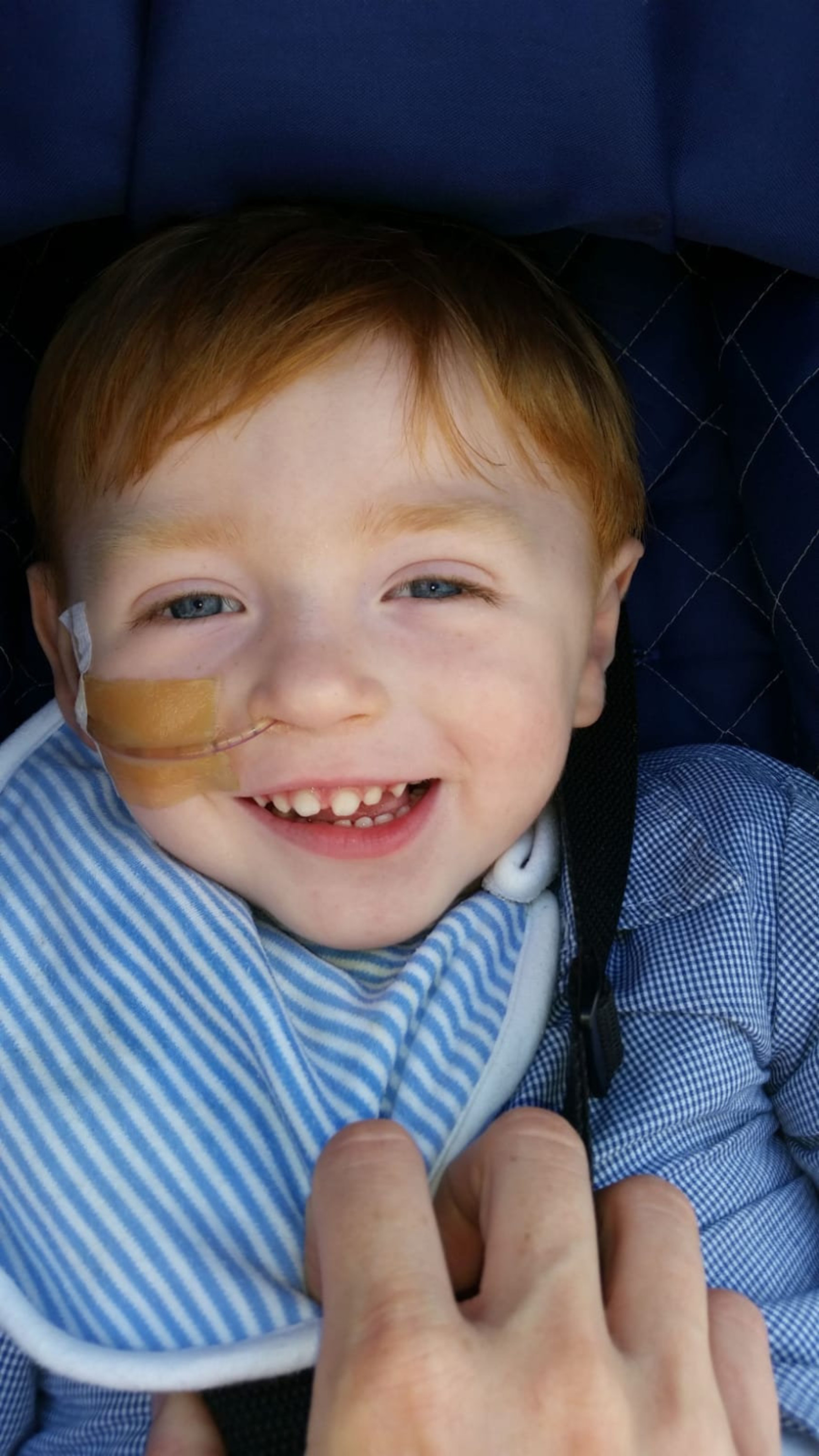
Ms. O’Neill was immediately stopped by customs staff at Dublin Airport following her flight from Barcelona.
After being escorted to a private room by officials, Noreen was cautioned. Officials searched her bags, but she eventually voluntarily handed over the medical cannabis (three 10ml bottles).
While officials were reportedly empathetic to Noreen and Michael’s cause, they still confiscated the bottles, each containing 250 drops of cannabis tincture, which would have provided Michael with essential medication for several months.
Noreen described the painful ordeal to BreakingNews.ie:
“I was looking at it on the sideboard, thinking of everything I’d gone through to get it – and it’s just three small bottles. But it could transform Michael’s life.
“To think that it could just go into a bin somewhere, or be destroyed, and to think of what it’s capable of, that’s what’s criminal here.
“I felt like a target, like a criminal target, the moment I got off the plane.
“They were watching me, and had been spotted and were radioing ahead as I walked along the corridor.
“I knew they’d be waiting for me, I knew I was going to be intercepted. It was a chilling feeling.”
Before trying to bring THC into Ireland, Noreen did everything by the doctor’s books.
Michael was prescribed 10 different pharmaceutical medications before he was 16-months-old, all of which failed to help end his suffering.

The 2-year-old now takes CBD oil, which has given him a more normal life. Michael is now able to sit up, smile, and lift his arms, legs and head. Before CBD, he was fed through his nose as he was unable to swallow.
“I felt like a target, like a criminal target, the moment I got off the plane.“
– Noreen O’Neil, Cannabis Warrior Mother
Speaking to the Irish Examiner, Noreen explained why she was campaigning for Michael’s access to medical cannabis:
“I don’t want to sneak around. They can stop me if they like. There is nowhere to go from here.
“I have been to three neurologists for Michael and they have all refused (to prescribe THC). I have tried all the medications prescribed to him. None of them worked and they all had side effects.
“We will be home in Kerry for Christmas and I can’t have Michael’s condition going downhill without having something to give him. If he does nosedive the hospital can’t do anything for him.
“I need to have the THC in my hand to give to him.”
While Michael’s condition has vastly improved since beginning CBD treatment, Noreen believes that he requires THC in order to have the best chance of having control over his epilepsy.
Noreen described Michael as “at death’s door,” when she first decided to give him CBD in January 2017. Three days later he was seizure-free.
Like many cannabis warrior mothers, Noreen’s story has resonated with countless other mother’s whose children are going through a similar ordeal, with many of them reaching out to Noreen.
“I have had parents coming to me whose children are having 70 seizures a day,” Noreen explained to the IE.
“The family are in an awful way. What do you say?”
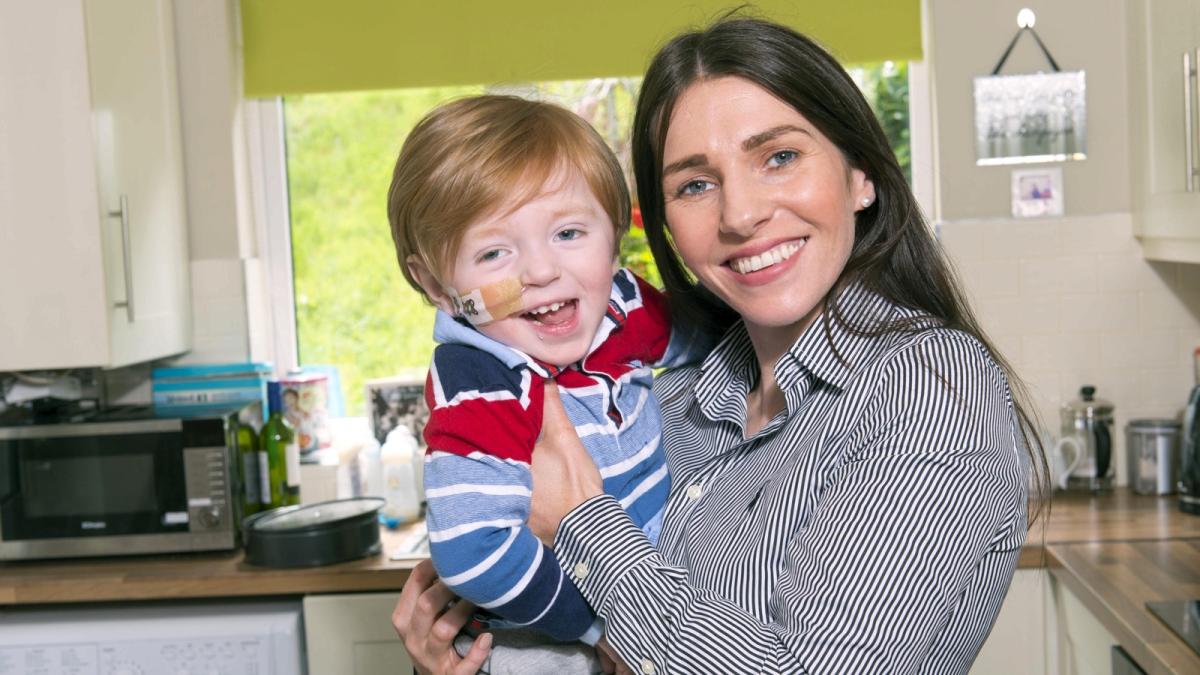
Inspired by the plight of Michael and other children in need of medical cannabis, Noreen is continuing to take the fight to the Irish politicians who have the power to help those in desperate need:
“We demand that no further delay be allowed by logistical negotiations between the HPRA and potential pharmaceutical distributors here.
“I have said in previous correspondence to Minister Harris (Ireland’s Health Minister), and now I say it to each official of the HPRA; there will be no let-up in our efforts to secure this life-changing medicine for our children.
“Our backs are to the wall. We have tried and failed every other option. We cannot and will not stop pursuing every avenue to obtain what our children need to stay alive.”
Ireland’s Department of Health has passed responsibility from themselves to individual doctors, claiming that the decision to prescribe any treatment, including medical cannabis, for individual patients lies strictly on the treating clinician, and that Minister for Health has no role in this clinical decision-making process.
Progress for patients trying to access medical cannabis in Ireland has been slow, with only 12 import licenses for cannabis medications being granted so far.
How much longer can Governments in Ireland and the UK deny access to medical cannabis to their citizens?
Forcing severely ill children and their families to travel, sometimes even relocating, abroad for potentially life-saving medication is morally reprehensible. More must be asked of our politicians.
Severely epileptic girl first to be prescribed medical cannabis but still cannot acquire in the UK
Severely epileptic girl first to be prescribed medical cannabis but still cannot acquire in the UK
- Jorja Emerson is believed to be the first child prescribed medical cannabis in the UK since the law changed
- The 2-year-old has a severe form of epilepsy, suffering up to 30 seizures a day
- The private prescription would cost around £3,000 every 3 months
- The family from Ireland would have to travel to London to pick up the prescription
- Jorja’s Father, Robin, has called for the drug to be available on the NHS
The first child to be prescribed medical cannabis in the UK following legalisation in November is still unable to gain access.
Jorja Emerson, 2, is diagnosed with severe epilepsy, suffering up to 30 seizures a day. Her family have campaigned hard to secure the landmark prescription, but may not be able to
The family went to a private hospital in London earlier this week to get the medication, which was finally prescribed on Monday, only to discover that this was only the start of obtaining treatment.
Jorja’s father, Robin Emerson, claims he is unable to get the drug because no UK pharmacy currently holds a licence to sell it. Speaking to The Independent, Robin explained his frustration with the process of trying to get life-saving medicine for his daughter:
“Jorja is entitled to her medication and it’s legal. There should be no issue.
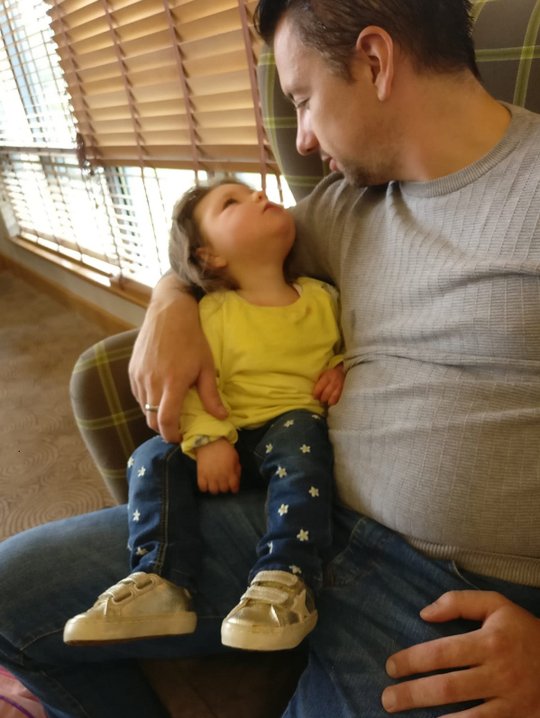
“We are letting bureaucracy get in the way of saving children’s lives.”
Robin stressed that his daughter urgently needs cannabis treatment, especially due to a chest infection which is “setting off her seizures.”
Responding to the father’s plea, a spokesman for the Government highlighted that while medical cannabis cannot be sold directly from a pharmacy, it “can be imported using appropriately licensed pharmaceutical wholesalers.”
“There are already a range of products that can be supplied and we are working closely with a range of other manufacturers to ensure a wider range is available for specialists to prescribe for their patients,” he said.
“[cannabis treatment] is the difference between Jorja living and dying.”
– Robin Emmerson
The spokesman also mentioned that there are already a small number of patients receiving the treatment following lawful importation, and so far, there have been no Home Office import licences refused from appropriately licensed pharmaceutical wholesalers in relation to medical cannabis.
The spokesman refused to comment on Jorja’s case.
Even though Mr Emerson picked up the prescription on Monday, importing the drug could take weeks or months.

Sir Mike Penning MP, who co-chairs the All-Party Parliamentary Group on Prescribed Use of Medical Cannabis, commented on the case:
“Parents like Robin already have more than a head full, coping with the stresses and strains of caring for very sick children.
“The last thing they need is a long and tortuous process to actually get the medicine that’s been prescribed.
“This assault course of bureaucracy needs sorting out once and for all.
“But in the meantime, if this prescription isn’t sorted soon I’m minded to ask a small cross party group of MPs led by myself and my co-chair Tonia Antoniazzi to go and get it from Canada and give it to Robin for Jorja.”
Jorja was only able to attain a private prescription and will cost her family £3,000 per month.
Speaking on radio talk-show LBC, Mr. Emerson explained:
“It’s looking at a cost of around £3,000 at the moment every three months, plus flights, hotels because I have to travel back to London every time,” he told host Eddie Mair.
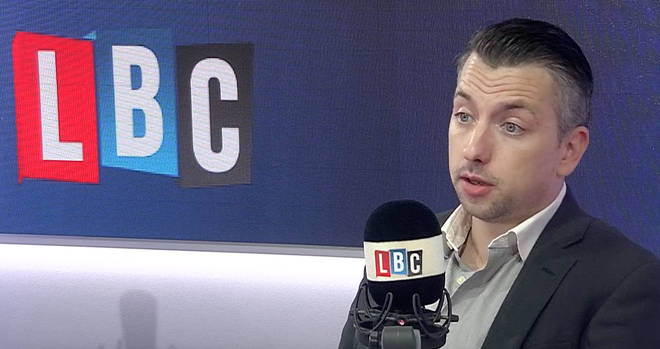
“[The prescription] has to go to a government department now, then they have to approve it, then they will speak with the pharmaceutical company in Canada to arrange how to get it across.
“They’re looking at a period of around seven to 14 days.”
Robin said cannabis treatment is “the difference between her living and dying,” and is refusing to leave London until he has obtained the drug.
How many families desperately needing a medical cannabis prescription will be able to afford £1,000 a month? How many children desperately needing medical cannabis to live a normal life, or live at all, can wait weeks or months for a prescription?
Medical cannabis should be readily available for all who need it, rich or poor, child or adult. How much longer can the British Government deny its citizens their right to a choice to a safe medication?
References and further Reading
Luxembourg to become first European country to legalise cannabis for recreational use
Luxembourg to become first European country to legalise cannabis for recreational use
- Coalition parties have confirmed that cannabis will be legal for recreational use in Luxembourg
- Only residents will be able to legally purchase
- Decision comes after a petition gained enough names to be discussed in Parliament
- More details are expected to be announced next week
Luxembourg is to become the first country in Europe to fully legalise cannabis for recreational use.
The announcement was made during a press conference held by the three coalition parties which make up Luxembourg’s Parliament: Democratic Party (DP), Luxembourg Socialist Workers’ Party (LSAP) and The Greens (déi gréng).
While cannabis will be available for commercial distribution, only residents of the country will be permitted to purchase the drug, with severe penalties being put in place against anyone who sells to minors or near schools.
Addiction prevention will also be a part of the government’s new policy.
A Parliamentary debate to legalise cannabis came after a petition, which called for legalisation and for the permission to set up Amsterdam-style coffee shops, reached the required number of signatures.
Petitioners used Canada’s recent legalisation efforts as an example of how legalisation can benefit a country’s society and economy.
Details regarding more information on the structure of legalisation are expected next week, once the coalition agreement has been finalised.
Luxembourg will become the first country in the EU to fully legalise cannabis.
How long before we see similar measures implemented in the UK?
References and further Reading

